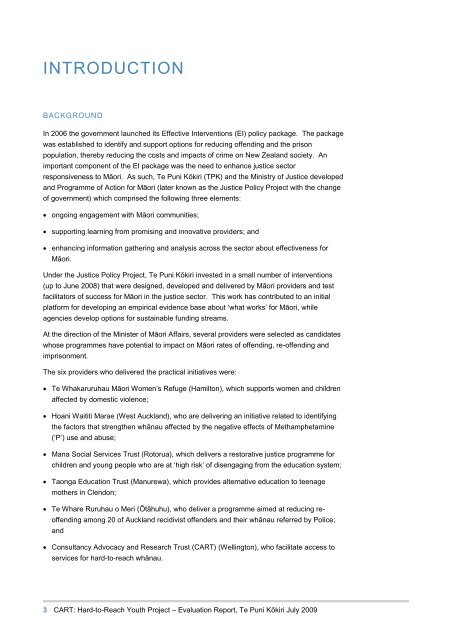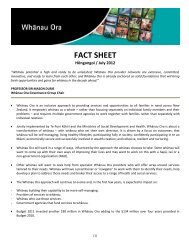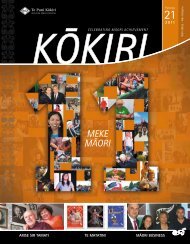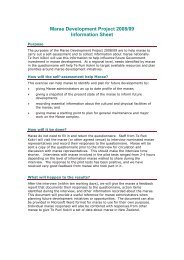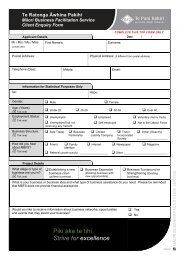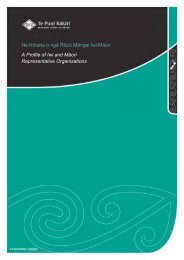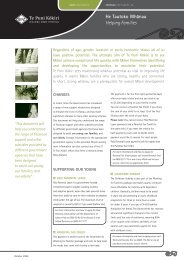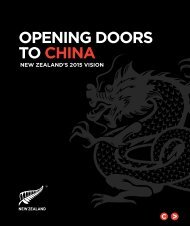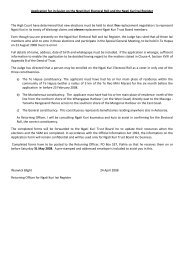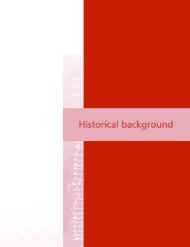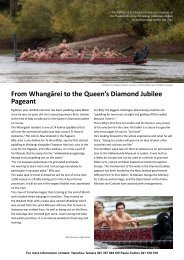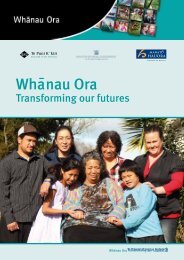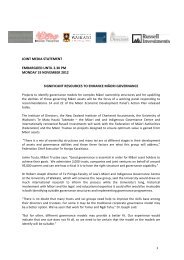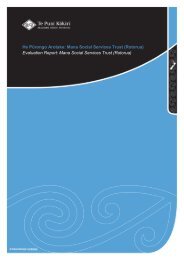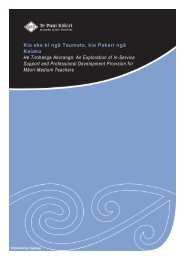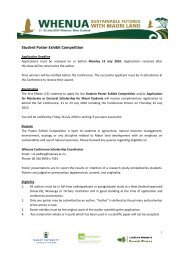Evaluation Report 2: Hard to Reach Youth (CART) - Te Puni Kokiri
Evaluation Report 2: Hard to Reach Youth (CART) - Te Puni Kokiri
Evaluation Report 2: Hard to Reach Youth (CART) - Te Puni Kokiri
You also want an ePaper? Increase the reach of your titles
YUMPU automatically turns print PDFs into web optimized ePapers that Google loves.
INTRODUCTIONBACKGROUNDIn 2006 the government launched its Effective Interventions (EI) policy package. The packagewas established <strong>to</strong> identify and support options for reducing offending and the prisonpopulation, thereby reducing the costs and impacts of crime on New Zealand society. Animportant component of the EI package was the need <strong>to</strong> enhance justice sec<strong>to</strong>rresponsiveness <strong>to</strong> Māori. As such, <strong>Te</strong> <strong>Puni</strong> Kōkiri (TPK) and the Ministry of Justice developedand Programme of Action for Māori (later known as the Justice Policy Project with the changeof government) which comprised the following three elements: ongoing engagement with Māori communities; supporting learning from promising and innovative providers; and enhancing information gathering and analysis across the sec<strong>to</strong>r about effectiveness forMāori.Under the Justice Policy Project, <strong>Te</strong> <strong>Puni</strong> Kōkiri invested in a small number of interventions(up <strong>to</strong> June 2008) that were designed, developed and delivered by Māori providers and testfacilita<strong>to</strong>rs of success for Māori in the justice sec<strong>to</strong>r. This work has contributed <strong>to</strong> an initialplatform for developing an empirical evidence base about „what works‟ for Māori, whileagencies develop options for sustainable funding streams.At the direction of the Minister of Māori Affairs, several providers were selected as candidateswhose programmes have potential <strong>to</strong> impact on Māori rates of offending, re-offending andimprisonment.The six providers who delivered the practical initiatives were: <strong>Te</strong> Whakaruruhau Māori Women‟s Refuge (Hamil<strong>to</strong>n), which supports women and childrenaffected by domestic violence; Hoani Waititi Marae (West Auckland), who are delivering an initiative related <strong>to</strong> identifyingthe fac<strong>to</strong>rs that strengthen whānau affected by the negative effects of Methamphetamine(„P‟) use and abuse; Mana Social Services Trust (Ro<strong>to</strong>rua), which delivers a res<strong>to</strong>rative justice programme forchildren and young people who are at „high risk‟ of disengaging from the education system; Taonga Education Trust (Manurewa), which provides alternative education <strong>to</strong> teenagemothers in Clendon; <strong>Te</strong> Whare Ruruhau o Meri (Ōtāhuhu), who deliver a programme aimed at reducing reoffendingamong 20 of Auckland recidivist offenders and their whānau referred by Police;and Consultancy Advocacy and Research Trust (<strong>CART</strong>) (Welling<strong>to</strong>n), who facilitate access <strong>to</strong>services for hard-<strong>to</strong>-reach whānau.3 <strong>CART</strong>: <strong>Hard</strong>-<strong>to</strong>-<strong>Reach</strong> <strong>Youth</strong> Project – <strong>Evaluation</strong> <strong>Report</strong>, <strong>Te</strong> <strong>Puni</strong> Kōkiri July 2009


